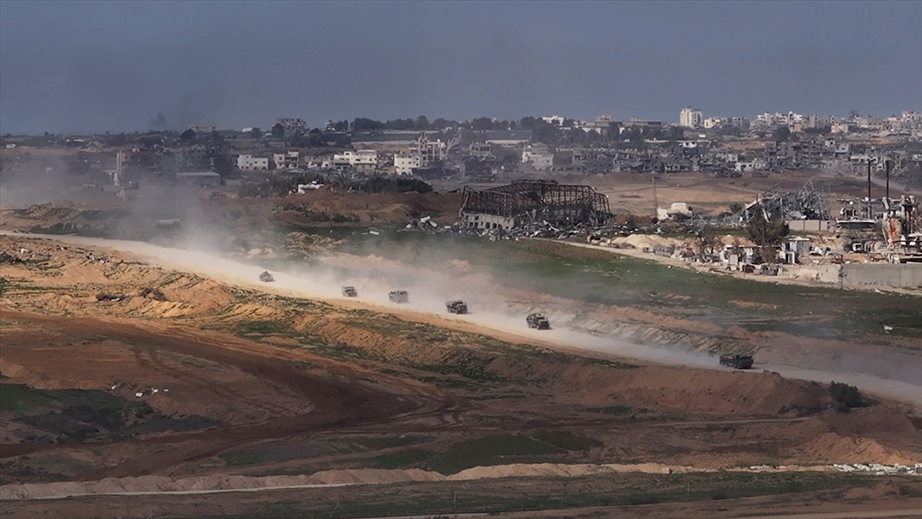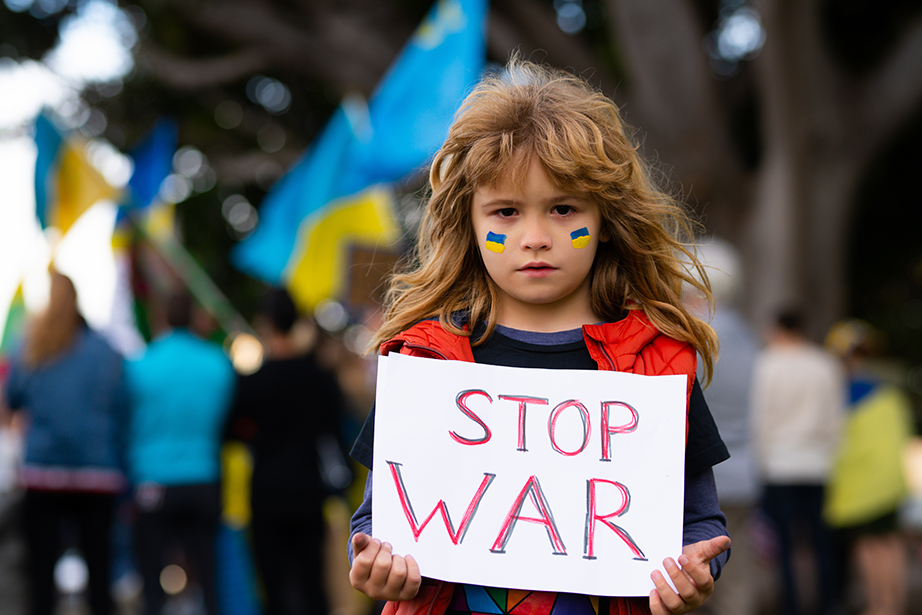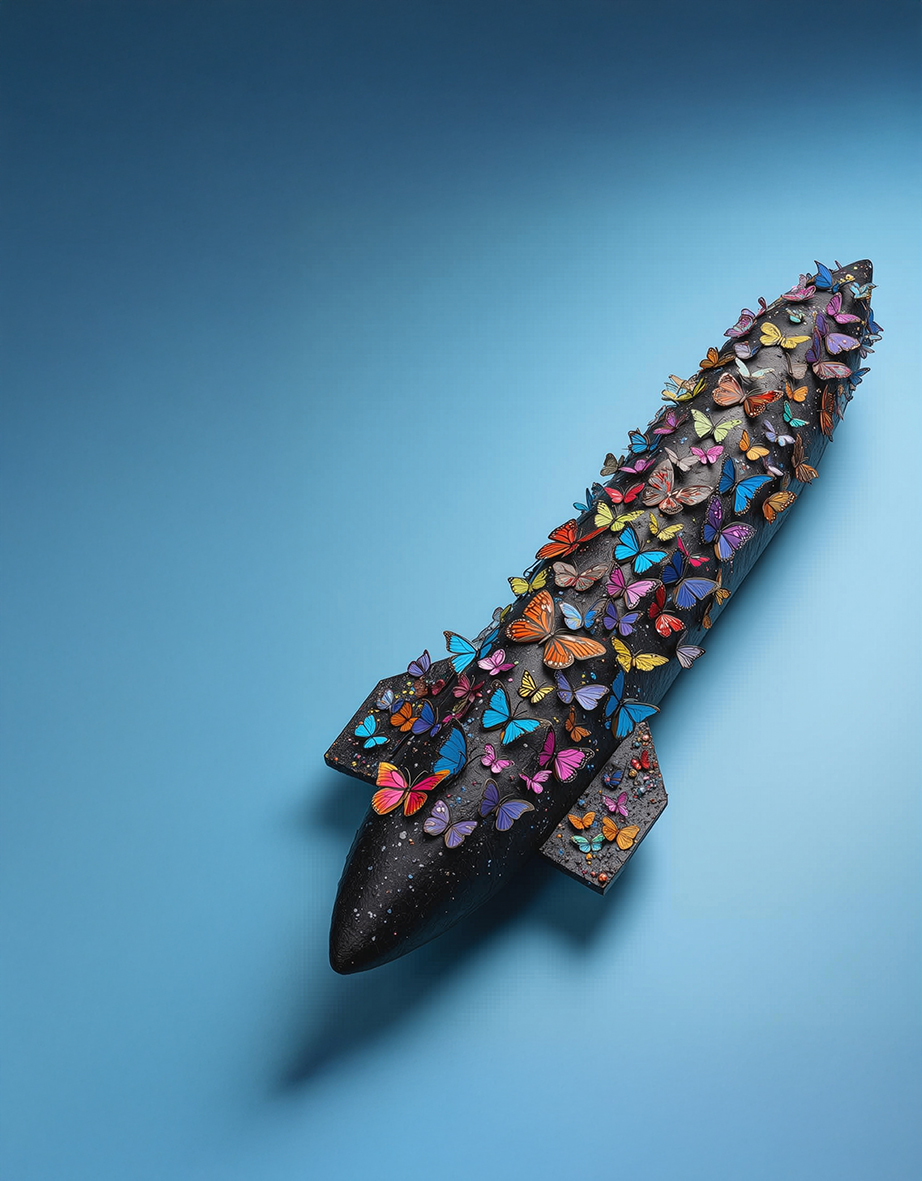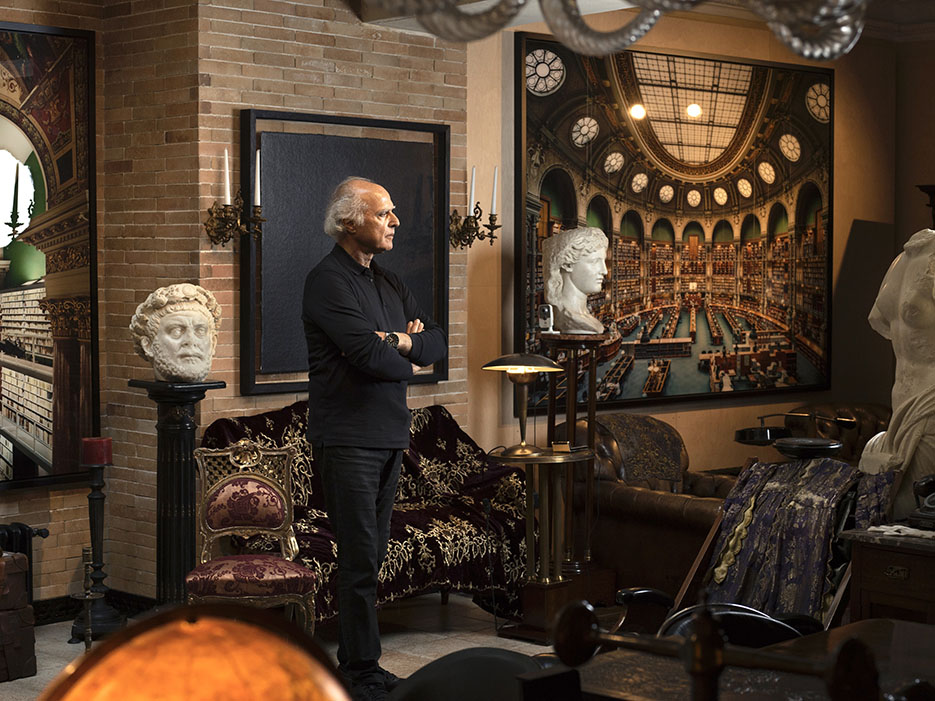“One day, even people in Israel will wake up and say: what have we been doing?” says U.N. High Representative for the Alliance of Civilizations, Miguel Ángel Moratinos. He argues that a new generation, unwilling to accept the suffering of war, could make this century the one that ends it.
These are times of global unease. The U.S. has abdicated its leadership in the multilateral organizations created after World War II. Russia is bleeding out in a trench war. The European Union cannot find its voice. Israel bombs its neighbors. And the chilling images of famine in Gaza are agitating consciences and the ghosts of the Holocaust. On its 80th birthday, the U.N. itself faces an imminent 20% staff cut to survive. But more than its budget, what seems severely damaged is its credibility to fulfill its founding mission: maintaining peace and fostering cooperation between nations.
“As the Security Council and the General Assembly find themselves with their hands tied, one of the most recent political initiatives gains relevance: the Alliance of Civilizations. For something considered a young U.N. project, it has already turned 20. During that time, it has been spared from the paralysis of the main bodies by being directly tied to the Secretary-General, who exercises his leadership through a High Representative: Miguel Ángel Moratinos.”
His generation has a transatlantic outlook, but Moratinos always had his sights set on the Mediterranean. Today, he is simultaneously the U.N. Special Envoy against Islamophobia and U.N. Focal Point for Monitoring Anti-Semitism, in addition to being High Representative of the Alliance of Civilizations. He was part of the construction of the European Union through his role in the negotiations of the Lisbon Treaty, which conferred legal personality and cohesion to the member states. In 1995, he helped the future NATO Secretary-General, Javier Solana, launch the Euro-Mediterranean Dialogue, and the following year, the EU chose him as its High Representative for the Middle East, a position he left in 2003 to serve his government. He belongs to an era of pragmatic negotiators and idealistic politicians who believe in global dialogue and the role of multilateral institutions. The perfect combination to become in 2019 U.N. High Representative for the Alliance of Civilizations, an institution he helped birth as Foreign Affairs minister of José Luis Rodríguez Zapatero, who conceived it with then-Turkish Prime Minister Recep Tayyip Erdogan.
This political initiative — “not cultural,” he clarifies — was created after the 9/11 attacks to prevent the feared “clash of civilizations” from becoming a prophecy. It seeks to promote dialogue, reduce tensions, and foster respect for diversity as an antidote to extremism, in a context dominated by disinformation and the identitarian retreat of populist patriotism. With his vision forged in the great conflicts of the last half-century, Moratinos seeks to open cracks of hope where others only see wars and walls.
At 74, the former Spanish minister is a breath of fresh air in high political hierarchies. A bureaucratic rarity, given his direct style, incisive analysis, and the incomprehensible optimism of a die-hard pacifist. Amid the ongoing global crisis we are experiencing, he is convinced that this century will mean the end of wars, based on his trust in the new generations.
At the time of this interview, he had just returned from Lebanon, a country that seems to live in a constant war with impressive resilience. He comes back from the trip struck by the enthusiasm of the so-called “youth among ruins,” whom he finds determined to open a new stage in the Lebanese future. “Let’s see if we can have a generation of peace,” he sighs.
Isn’t that very optimistic for the times we live in?
Peace must be sought. If you don’t look for it, you won’t find it.
True to that conviction, just in June, he also traveled to Italy, Albania, Morocco, Greece, and Bosnia. His diplomatic journey will culminate by the end of the year in Saudi Arabia, where the next Alliance summit will be held. There, too, he finds an air of renewal even more unexpected than that one of the Lebanese youth. There is no doubt that he has embraced Crown Prince Mohammed bin Salman’s “Vision 2030” to modernize the country. In Riyadh, he sees women as agents of change. “They are the ones who do all the work and have all the ideas,” he assures. “Saudi Arabia has changed a lot.”
The optimism vanishes when Palestine comes up. This conflict, the great failure of the international community in the last century, shadows his conviction. His own work building bridges on both sides of the Mediterranean has stumbled upon the world’s inaction. And the frustration is evident. “We are only witnesses to the horror,” he laments. He is not referring to the UN, which has sacrificed the lives of almost 400 employees in Gaza since the start of the October 7 war, not counting NGOs and other humanitarian workers. What troubles him is Western immobilism, and particularly that of the EU.
We stand with our arms crossed, unable to assume our responsibility. And that concerns me enormously. Except for the Spanish government, who I think maintain coherence in foreign policy, the others are perplexed, totally paralyzed, despite the enormous responsibility. Our European generation, the current and future ones, will ask us to account for what Europe did in the face of what is happening in the Middle East. What actions did it take? Why was it silent? What was its complicity? And that is what, as a European, I cannot accept. I absolutely do not agree with this silence, with this inaction, and with this inability to try to save human lives, to put an end to a conflict, to a horror that in the end can lead us to who knows what unimaginable scenarios.
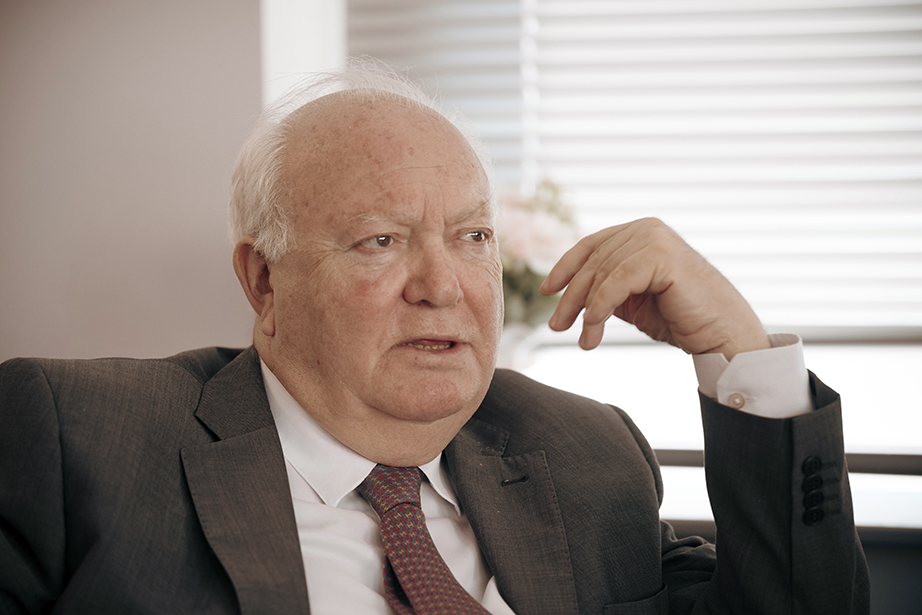
That silence also leaves moral wounds in a society. How are we going to deal with them?
Those wounds are not going to be only for Europeans. In Israel, they will wake up one day and say: What have we been doing? Many of their citizens ignore what is happening. We need to help the Israeli society, too. We have to work with them. We cannot close our eyes. We have to speak and dialogue with Israel. Friends have to tell the truth, instead of closing our eyes and saying that everything is fine. And I consider myself a friend of Israel.
And what truth must be told?
There will be no peace and stability in the Middle East if there is no two-state solution, a Palestinian state and Israel, but not only for the Palestinian State, but for the state of Israel. The best guarantee of the state of Israel is that there be a Palestinian state.
Will Europe recognize the Palestinian state?
It must — it has no choice. In 1999, when I was the European Union’s Special Envoy for the peace process, the Berlin Declaration — adopted at the level of heads of state and governments — stated that the EU would recognize the Palestinian state “in due course.” And when is that “due course”? When there is no territory left and no people? The mistake we all made was leaving recognition of the Palestinian state until the end of the process. The sooner we recognize it, the more we will guarantee future peace. Not recognizing the Palestinian State as the first step is a serious error that many commit. The Palestinian state must be recognized urgently.
If access by land is so complicated, why has no NATO country dared to break the Israeli blockade with a humanitarian flotilla?
NATO should not intervene. War is not defeated with war. The EU High Representative has tried to negotiate but has not succeeded. The problem is not humanitarian aid. It’s the cease-fire, ending the war and the intervention.
Why does the international community need to obtain permission from the attacker to distribute food in Gaza?
Well, that’s the problem. But to solve it, we need strong diplomacy that demands a series of measures forcing Israel to concede on these maters. Since there has been no pressure, no negotiation, no single European commitment, nothing has changed. Germany has not given the green light, the Baltics are not interested, and only Spain was taking the lead.
What is happening with the EU?
Europe is in a process of transition. It has lost its multilateral and integrative vocation and is retreating toward a sovereigntist nationalism. They still have and must develop the Cotonou Agreement, which I promoted. I was also the signatory of the Lisbon Treaty, which has not been fully developed, and now we have a kind of hangover where they want to take us to a new sovereignism. That is, to national policies that forget the soul and essence of the European Union. Many of us were federalists and continue to be so. We envisioned a great European federation to transfer sovereignty to that new entity. We knew it was complicated, so we sought a balance. The EU is a very unique entity — neither nationalist nor fully federalist. We found a middle ground, with many twists and turns, with some federalization, and some preservation of national sovereignty. But now some actors want to take us back, not to the starting point, but to a pre-EU model — back to the 1957-58 era before the Treaty of Rome era. That is what cannot be accepted.
There should be a good understanding of what the aspirations of the societies and member states are, but without losing the “union” or the European Economic Community part. We have to play with those two terms, union and community. The union is important, but the community is even more important. We changed it to a union but with the perspective of a great union, of a Constitutional treaty — which was signed but not ratified — where we gave it the flag, the anthem, sovereignty, let’s say a foreign minister. Almost a federal Europe was created. But the French and Dutch did not accept it, rejecting it in referendums. And we were left with the intermediate mini-treaty that was the Lisbon Treaty. It actually can give quite a few answers to today’s world, but we are not fully developing it. That is where Europe needs to respond.
Now the mission is to create a joint Defense.
Yes, now they are all very enthusiastic about giving a great response in security and defense, which is fine, but it is not enough. Why should we rearm with billions of euros in military defense spending if we don’t know what we’re going to do with those weapons and that budget, because we don’t have a common foreign policy? We cannot put the cart before the horse. What does Europe want to do in the 21st century? What role should it play in the multipolar world we live in? Should we continue to depend solely on transatlantic relations? Don’t we have a responsibility in other parts of the world? Shouldn’t we defend our own interests without waiting for others to tell us what to do or following the dictates of others? We need to make our own decisions. So far, up to this moment, that doesn’t seem to have crystallized yet. We have a divided Europe, with a double standard, a regrettable double standard in the case of Gaza and Palestine.
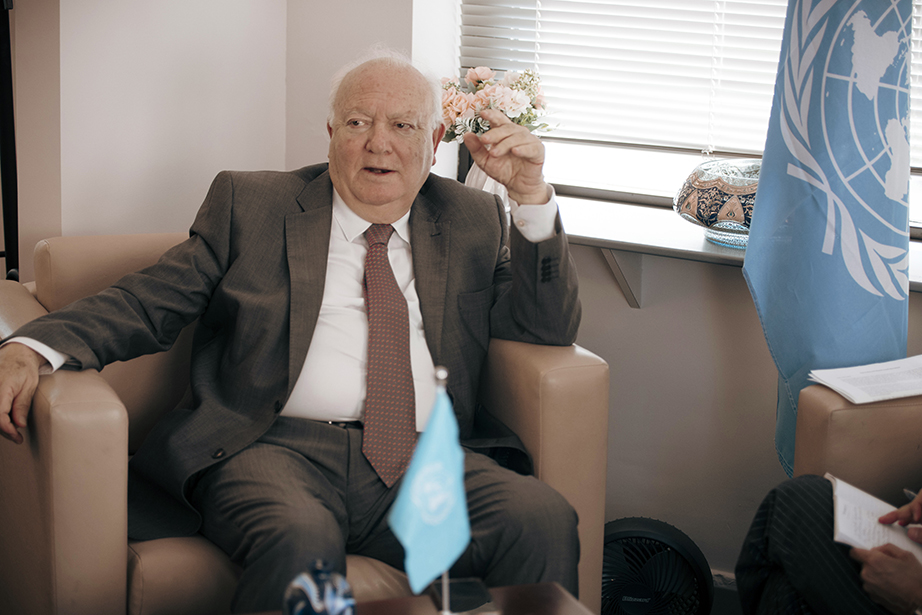
Comparing to?
We are all very reactive to the consequences of the war in Ukraine, where there is unity. Everyone rightly condemns the aggressor and the Russian Federation’s violation of the U.N. principles. But we are absent, incapable, when it comes to an issue that is even more vital than Ukraine: the Middle East. The major challenges Europe will face — aside from whether the Russian threat is what they tell us, which should be assessed — are terrorism, migration, and destabilization across the southern Mediterranean rim. What is the threat of terrorism? What is the threat of immigration? What is the threat of destabilization throughout the southern strip of the Mediterranean? Those are real threats in a vital area for our future. And what do we do? We are not there. We are mere witnesses to the horror that is taking place, arms crossed, unable to assume our responsibility. That’s what worries me enormously.
Do you believe that in this moment of global tensions and hopelessness, like the one you have just described, there could also be a new opportunity for the Alliance of Civilizations to provide a different kind of solution?
Yes, we already initiated the path of what is one of our great initiatives: the Alliance of Civilizations for Peace. We presented this concept at the Fez summit in 2022 for the first time. We developed it more in Cascais in 2023, and this year we decided to jump, and we have proposed this new initiative called “A Cry for Peace: Ending Wars, Respecting International Legality.” We launched it last April 26 in Guernica (Spain), starting a journey to defend peace at all costs, touring the international geography to take this message to places that have suffered the horrors of war with different activities. Now we are going to have the second edition in Sarajevo on Oct. 16-18, followed by Beirut, Colombia, Angola, Nagasaki, and Coventry. We will create a “death map” of different cities that have suffered the horrors of war. The aim is to build widespread public opinion in favor of peace, so that conflicts and crises are no longer seen as things to be resolved by force, but through negotiation and dialogue. We are in the 21st century, with the moral, political, and ethical maturity we have reached to negotiate our differences and controversies peacefully and through dialogue.
Have we really accomplished that? There seems to be a regression. Are you talking about last year?
No, no, what I’m talking about is that we must have public opinion in favor of peace, which we don’t have in Europe. People seem to be thrilled with the war in Ukraine. There is a kind of great militarism. We have to defeat Russia; we have to continue the war, the patriotism of war. I’m not in favor of that. My call is for peace, not for wars. There is no justification for any war. No war is legitimate, none of them!
None?
None! Western society has reached a moral ethical level of abolishing the death penalty, because we consider that we have no right to take the life of any barbarian, madman, schizophrenic, or criminal, who has been arrested, tried, and condemned for the vilest murders, crimes or horrors, but in the end, we decided that we cannot kill him and we have to take him to jail. Yet, we cross our arms when thousands of civilians who committed no crime, have not been detained, have not been arrested, nor sentenced, nor tried, die as “collateral damage of war.” Why do they have to die if they have committed no crime but wanting to live?
Would you sign a peace agreement in Ukraine at any price?
At any price? No, at the price of a diplomatically negotiated agreement. Negotiating is not appeasement. It’s a negotiation to avoid deaths and destruction. You don’t give up your rights; you seek the best solution. What is the situation now in Ukraine, after three years? Ask the Ukrainian citizens whether they still want war. We would have to have an exact gauge to see if they want, because it’s very easy to declare war in Brussels or Washington, D.C., and send others to the trenches. The irony is that in the most technological war in history, where we fight with drones and such, it still plays out in trenches, like World War I, the most dehumanizing war ever. Do we want to continue like this? In the 21st century?
That could be a point of contact with the Trump administration, right?
Well, yes, as long as the Trump administration achieves a cease-fire. Cease-fire or negotiation is not submission, it’s not surrender. They’ve made us believe that negotiation equals appeasement. No, negotiating is defending your rights and finding a way to protect your interests without abandoning them. I’m not saying Ukraine has to give up territorial integrity, far from it, but it does need to end the war. Even Zelensky himself is now asking for a cease-fire and negotiations because he realizes he has to negotiate. Why didn’t they negotiate when they had an agreement after a month or two into the war? They had a deal ready! But the UK and the U.S. governments decided that the war had to continue. What is the result? How much territory has been lost? Are they better off now than two months after starting the war? I won’t pass any judgment; each one decides their own future, but my commitment and my mission are to end wars. Wars do not solve problems; they worsen them and make suffering unbearable. Enough. This is the 21st century, not the Stone Age or the Paleolithic, where people killed each other with sticks or arrows. We now have the intellectual capacity to solve problems differently.
“Damn the wars and the bastards who make them,” said the Spanish politician Julio Anguita upon learning of his son’s death in Iraq.
Exactly. They have no justification. Hannah Arendt said: Wars are not legitimate; they are not democratic. There is no political debate to declare them. Has there been a political debate in Ukraine about the war? Parliament is closed; it’s not discussed. Has there been a debate in the U.S. Congress to bomb Iran? War is not politics by other means, as they tell us.
Or as the U.S. says today, peace through strength.
No, that’s false. War is destruction, annihilation, denial of reality, darkness, suffering, and pain. It’s unacceptable. Therefore, the 21st century will be the century that ends wars.
Where does that optimism come from?
From belief in human beings, society, and new generations, who will be capable of putting an end to wars because the suffering is unbearable. Don’t you think there is now a worldwide movement that can’t bear watching the war in Gaza any longer? This will have consequences, and new generations will say: wars and the use of violence to solve problems are over. I am convinced.
In the U.S., President Trump deports foreigners who show sympathy toward ending the war in Gaza.
Just as there is a lobby for war, we have to create a lobby for peace. The problem is that there are no lobbies for peace. Only war lobbies, who feel very comfortable in their positions, with arm industries benefiting in immoral and extravagant ways from trillions of dollars without paying practically any taxes, without contributing to the welfare of humanity, profiting from death and destruction. We need to create a lobby for peace in the business world, social world, and cultural world. One that says: Enough; this stops now. We must prioritize all economic, financial, and political initiatives that seek peace, well-being, and coexistence.
Could such a lobby be housed under the Alliance of Civilizations?
The Alliance already has that mission. We are looking for partners to support us in defending peace. Is there a nobler goal? Of course, we are dangerous to the military lobby.
Well, the military industry is living through good times.
Yes, but it’s our responsibility. Not doing so would mean failing to uphold our commitment to multilateralism and international governance that respects human rights and the great values of humanity.
The Alliance began as an initiative between Spain and Turkey, later joined by many countries. Today, which are the most receptive ones to these proposals?
Right now, the Group of Friends of the Alliance has 160 members — 130 are U.N. member states, the rest are international organizations or public entities. We’ve grown enormously, with more than 20 countries joining in recent years. Today, the Alliance is fully relevant because we now live in a multipolar world. Different poles mean different cultures and civilizations that must coexist, despite geopolitical tensions. We have to start from the fact that our societies are multicultural too. The Alliance is the best platform for bringing everyone together to express their differences, as long as there’s respect and mutual acceptance.
Do you think that having been appointed Special Envoy for the Fight Against Islamophobia strengthens or weakens your credibility with the other side?
It strengthens it, because I am also the U.N. Focal Point for Monitoring Antisemitism. My mandate covers combating discrimination based on religion, faith, or belief, which reinforces my role. I’m proud that my position unites these two fronts. Fighting Islamophobia means respecting the Muslim world and its values and principles — but not imposing Islamism on everyone. I’m a staunch defender of Jewish people and a fighter against antisemitism. I don’t tolerate antisemitism.
People are largely ignorant about religions. Few read religious texts from other cultures — the Quran, the Torah, even the Bible. There’s much confusion and manipulation of messages from all sides. Therefore, including both battles in my mandate makes my work more coherent and gives the Alliance greater value in the future.
What tools would you like to have that you don’t?
Just a bit more funding — and greater dissemination of our messages. The media don’t pay much attention to the Alliance because they see it as a second-level instrument for not providing immediate solutions. That’s a double-edged sword — it lets us work quietly, but we lack visibility. The Alliance is the U.N.’s first pilot exercise of 21st-century multilateralism. From the start, we’ve engaged with the private sector, media, civil society, NGOs, women, youth, parliamentarians, politicians, municipalities — the whole complexity of 21st-century society.
Are you concerned that anti-immigrant sentiment could spread and plunge the world down?
Yes, especially in Europe and particularly in France. Immigration has become central to political debate in some European countries. It’s outrageous that populations who come to help and contribute to a country’s well-being — respecting laws, with only rare criminal cases — become targets in a sector of manipulated population for political gain because it gives votes. The big questions of our society should be: what will AI mean for us, how will we live together, how will we grow, and how will Europe compete globally? Not how many Muslims there are. People say immigration is a big problem; it’s both! The big problem and the big solution — without it, we cannot meet the economic challenges. Spain’s growth, one of the best in Europe, is partly due to a well-integrated immigrant workforce. Yet, there are first and second-class citizens. Some say residents are accepted but should be expelled if they commit crimes. If a Spaniard commits a crime, do we expel them? No — they serve their sentence here. That view treats immigrants as outsiders, not as part of the society. Society is multicultural. I am from Madrid. I understand we all have our identities. But if my daughter falls in love with a Moroccan or an African, welcome — what’s the problem? Europe’s greatness came from its values. Now we must live by them. And let’s not forget we Spaniards were once emigrants, often treated badly abroad.
The problem in Spain comes when Morocco opens the fence for political disagreements, like Castro did with Mariel.
Immigration is a foreign policy issue. We must invest in and develop Africa and help these countries grow. Once people arrive, it becomes domestic policy. Until now, interior ministries handle immigration, not foreign ministries. There will be no solution as long as all we do is build walls, fences, police, and security. People from Central America don’t cross the continent for fun — they do it because they have no work or hope. The solution is major development plans in their home countries and legal, negotiated migration with origin and transit states. When there’s a good relationship, there’s no problem; problems come when you try to impose solutions. Dialogue, understanding, and cooperation solve problems — without them, you get crises.
That’s the opposite of the U.S. approach today.
Yes, because I am a U.N. multilateralist. I defend countries’ right to seek negotiated, peaceful solutions.
What if we’re wrong and they prove their strategy to be more effective?
We’re not wrong. When your policy is based on values and principles, you can’t be wrong. Peace through strength won’t last. We must seek lasting peace through inclusive, real negotiations for a sustainable future for all sides.


